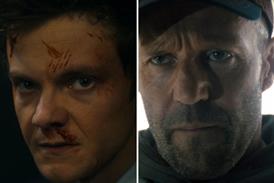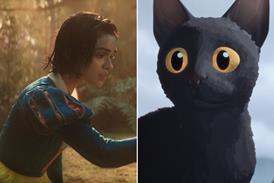Latin America and China are two of the hottest markets to watch for growing film investment, experts told the fourth-annual Film Finance Forum at the Zurich Film Festival, organised by Winston Baker.
French producer Pierre-Ange Le Pogam of Stone Angels said that he is “Looking a lot to China, the ‘zero’ we have at the moment could become substantial investment. In three years, China could be a bigger market than the US.”
Charles Coker, the MD of Dasym Media who is working on Chinese co-productions with John Woo and Jackie Chan, noted: “China is a mystery to everybody here. It’s seen as the emerging behemoth in the entertainment industry…Media and entertainment spend rose from $350bn in 2011 to $547bn in 2012.” He added that 2002’s 1300 cinema screens were now closer to 13,000; Chinese box office in 2012 totaled $2.7bn and is on track to hit $3.5-$3.5bn this year.”
Stuart Wilkins of new Swiss-based financial company Blue Pencil Investments said: “We are talking to China and Latin America, especially Brazil, Mexico and Panama.” Judith Chan of UK bank Coutts agreed “South America is pretty exciting.”
China’s role as a buyer is also increasing. “Two years ago the prices ballooned,” said David Jourdan of IM Global (which just opened a Beijing office). “We went from seeing deals for half a million to something like Expendables 3 selling for $13m to China.” Bill Johnson of sales company Lotus Entertainment agreed that prices had been booming but now “the bubble seemed to pop. I’m now trying to understand where the market lies.”
Markus Barmettler, partner of Omega Entertainment, said that with equity financing becoming more difficult in Europe, he now concentrates on Asia. “I’ve got a got a strong equity base in Asia,” he said.
Nigel Sinclair of Exclusive Media noted that Japan is coming back as a buyer, but that parts of continental Europe like Spain weren’t rebounding.
Finding smart money
Closer to home, Claudia Blumhuber of Swiss finance powerhouse Silver Reel Partners says that her key approach is de-risking by ensuring pre-sales and using soft money. “I say presell as much as you can, it can get rid of the risk as much as you can. Maybe hold back one territory like the US,” she said.
She noted that on Olivier Dahan’s Grace of Monaco, starring Nicole Kidman, Silver Reel was “out within 10 months [before the film was finished] with a healthy return on our investment,” adding that was largely due to pre-sales.
Le Pogam said that pre-sales to French TV for the right kind of projects was still lucrative — for instance Grace Of Monaco, budgeted at $33, sold for $5m. The production also benefitted from global pre-sales and €4.5m from the tax shelter in Belgium.
Chan was bullish that the right kinds of projects are getting financed. “There is a lot of smart money out there and good films find that money,” she said.
Wilkins is concentrating on a portfolio approach. “There is skill skepticism from equity investors, especially in the UK, many of them have suffered from investments in the past. We have to educate people and present them the best opportunity to invest,” he said.
Le Pogam added that he looked for projects that were unique in the marketplace, had the right balance of quality and cost, and had good partners on board.
Chan agreed that the partners on a project can be the most important criteria, from producer to sales company. “We need quality partners we trust,” she said. Blumhuber added that she wanted to work “with the right people who respect the money.”
Sales trends
On a top-level international sales panel, the experts warned that it’s a tough market for adult dramas, or comedies for that matter (that leaves smart genre films).
Films have to be budgeted at the correct level or they are falling apart. Greg Shapiro, who produced Kathryn Bigelow’s The Hurt Locker, said that film’s budget started at $18m but went down to about $11m.
Brian Oliver, president of Black Swan producers Cross Creek Pictures, also warned: “the days of covering yourself completely out of foreign [pre-sales] are gone.”
The changing landscape of TV and brands
The increasing prestige of TV could actually help the film world, the experts added. Dario Suter of DCM said: “I don’t think [TV is] replacing films at all. We’ll see more connections, like an actor becoming famous from series formats. In A Long Way Down we have Aaron Paul from Breaking Bad. It’s a win-win situation on both sides.
Marco Ammon of Sky Deutschland added: “There is a gap opening between tentpoles and independent cinema. Behind The Candelabra is a great example of how independent cinema and TV can blur and come together in a good way.”
Marc Schmidheiny of DCM spoke on behalf of local producers when he said: “We see Danish or French films travel well but there is no Swiss comedy that appeals to a German audience. Its inexplicable why we can’t make local productions that appeal to other countries. We need to figure that out.”
Georges Kern of Swiss luxury watch brand IWC Schaffhausen spoke about the company’s involvement with film via celebrity ambassadors such as Cate Blanchett, product placement in key films, and working with film festivals such as Dubai and Tribeca to present rising talent awards.
Chan added: “Working with brands will be more important. You could see Skyfall supported by 10 brands, or The Devil Wears Prada.”
ZFF and Winston Baker organised the Forum; Screen International was a media partner.

























No comments yet